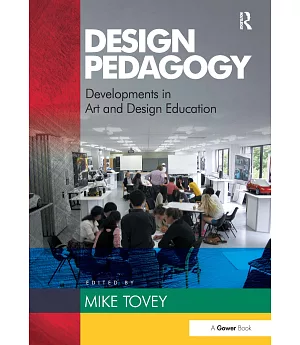Design Pedagogy explains why it is vital for design students that their education helps them construct a ‘passport’ to enter the professional sphere. Recent research into design teaching
has focused on its signature pedagogies, those elements which are particularly characteristic of the disciplines. Typically based on core design theory, enlivened by approaches imported to the
area, such work has utility when it recognizes the visual language of designing, the media of representation used, and the practical realities of tackling design questions. Increasingly the
21st century sees these activities in a global context where the international language of the visual artefact is recognized. This book draws on recent work in these areas. It includes a number
of chapters which are developed from work undertaken during the period of special funding for centres of teaching excellence in the UK up until 2010. Two of those in design have provided the
basis for research and innovative developments reported on here. They have helped to enliven the environment for design pedagogy research in other establishments which are also included. Design
students need support for the agile navigation through the design process. Learning experiences should develop students’ natural motivations and professionalise motivation to create a
resilient, informed and sustainable capacity. This is the essence of ‘transformative learning’. This collection explores how design education is, in itself, a passport to practice and
showcases how some of the key developments in education use techniques related to collaboration, case studies and experience to motivate students, enable them to express their identity, reflect
and learn.





















